Mental health care is at a crossroads. While we’ve made progress in understanding mental health, the current framework (the way we treat it) needs a serious makeover — a much-needed facelift!
Because here’s the truth: For decades, psychiatry has leaned heavily on pharmaceuticals to address mental health struggles, but despite all the advances in medications, patient outcomes haven’t really improved. And while there’s been some progress in raising awareness and reducing stigma, too many people are still left struggling to access the care they truly need.
In this post, we’ll talk about why psychiatry’s framework is long overdue for change! That… it’s time for a transformation that takes into account the modern challenges and growing demand for effective mental health care.

The Growing Mental Health Crisis
Mental health struggles are now more pervasive than ever, affecting people of all ages, backgrounds, and walks of life. Whether you’re dealing with mental health issues yourself or trying to help someone who is, the reality is impossible to ignore — the mental health care system is overwhelmed and failing to provide the support patients truly need.
Before COVID-19 hit, mental health concerns were already on the rise. But after the pandemic, things got even worse.
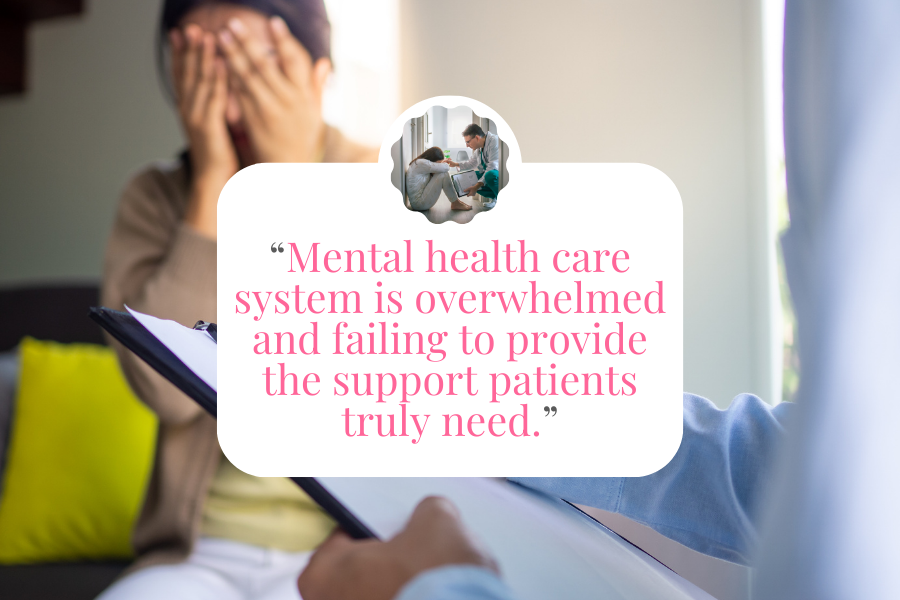
- A 2022 study revealed record-breaking deaths in the U.S. due to drug use, alcohol, and suicide—also known as “deaths of despair.”
- What’s worse, people who contracted COVID-19, even with mild symptoms, were 60% more likely to develop mental health problems. In fact, researchers linked over 2.8 million new psychiatric disorder cases to COVID infections worldwide. (Source)
These numbers are a stark reminder of how urgent this issue is.
The demand for mental health care is skyrocketing, and yet the system hasn’t evolved to keep up. So, what’s holding it back? Let’s start by taking a closer look at how psychiatry operates today.
Psychiatry Practices: A System Stuck in the Past?
As of now, Psychiatry is the only medical specialty that rarely examines the organ it treats — the brain.
Think about it. Cardiologists use tools to look directly at the heart. Orthopedists examine bones and joints using imaging and tests.
But psychiatrists?
While they diagnose and treat mental illnesses, they typically do not examine the brain directly —unlike other medical professionals who assess the organs they treat.
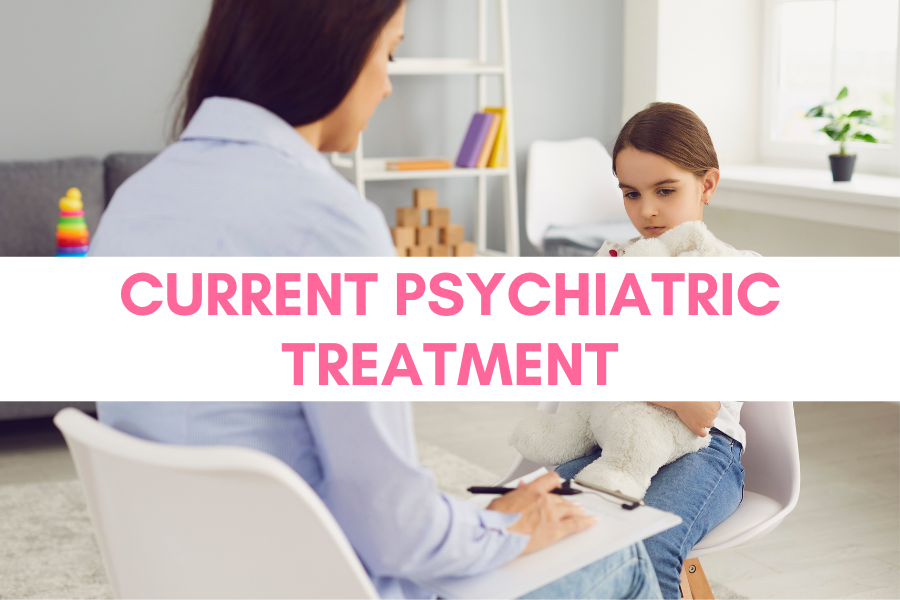
Instead, most psychiatric diagnoses are still based solely on observed behaviors and self-reported symptoms, with little to no biological testing involved.
For example:
- If you report feelings of sadness or hopelessness, you’re often prescribed antidepressants.
- Share that you’re experiencing anxiety, and anti-anxiety medication is the typical response.
- Struggle with focus issues? You’re likely diagnosed with ADHD and prescribed stimulants
While these medications can be life-changing for some, they also come with significant risks. All psychiatric drugs come with FDA black box warnings, meaning they have the potential to cause serious side effects.
For some patients, these medications simply don’t work. For others, they may even worsen symptoms or trigger new ones.
It’s no wonder many people feel confused, hesitant, or even fearful at the thought of taking psychiatric medication. And unfortunately, these concerns are often dismissed rather than explored.
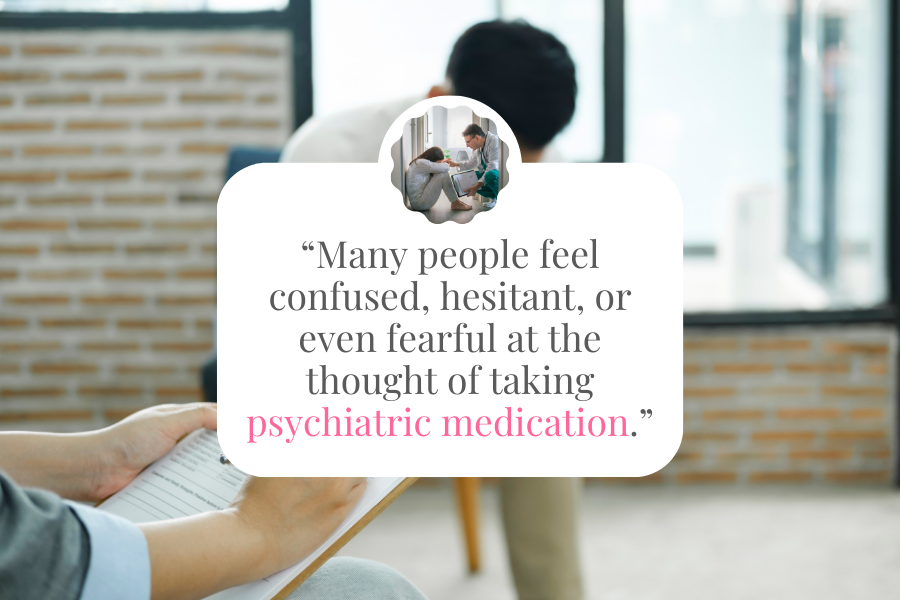
A Much Closer Look at the Current System
🧠 Over-Reliance on Medication
Right now, the American mental health care system is heavily reliant on antidepressants and other psychiatric medications, often using them as quick fixes rather than part of a comprehensive treatment plan. In fact, antidepressants have become the first-line treatment for some of the most common mental health conditions—including depression, anxiety, and insomnia. (Source)
🧠 Standardized Diagnoses
And because there are no biological markers or lab tests for most psychiatric conditions, diagnoses are often made through the use of standardized tools like symptom checklists, psychiatric interviews, and rating scales.
While these approaches aim to bring structure to what can be highly subjective and variable experiences, they often fail to capture the full complexity of an individual’s mental health. (Source)
🧠 Polypharmacy and Its Dangers
As a result, the system has fallen into the trap of polypharmacy—the practice of prescribing multiple medications at the same time.
A 2022 study highlights that current psychiatric treatment standards are heavily oriented toward this approach, with patients often receiving combinations of antidepressants, antipsychotics, mood stabilizers, anxiolytics, hypnotics, antihistamines, anticholinergics, and other somatic treatments.
This raises serious concerns, as these combinations are frequently prescribed without a comprehensive understanding of how the drugs interact—or the long-term impact they may have on a person’s mental and physical health.
Reframing the Narrative: From Mental Illness to Brain Health
The need for change is clear.
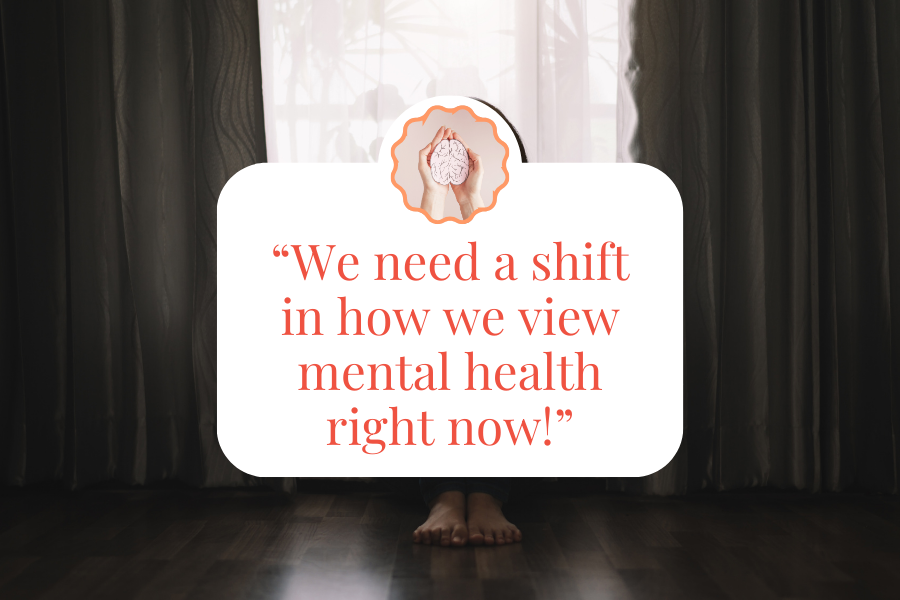
More and more experts are calling for a new perspective: treating mental health not as a set of “disorders”, but as issues rooted in brain health.
By doing this, we can:
- Reduce stigma: Viewing mental health through a biological lens helps break down the stigma surrounding it, making it easier for people to talk about their struggles without shame.
- Boost treatment adherence: When patients understand the biological causes of their struggles, they’re more likely to stick with their treatment plans.
- Improve outcomes: Treating the root causes of mental health conditions through a brain-centered approach leads to more effective and personalized care.
Cutting-edge tools like functional brain imaging (such as SPECT scans) are already giving us insights into brain activity. These scans can help clinicians identify dysfunctions in specific areas of the brain that correlate with mental health symptoms.
Researchers are also working on identifying biomarkers for conditions like depression and anxiety, paving the way for more targeted, more precise, and science-based care.
The Power of Holistic Care for Mental Health
As a health and wellness coach and therapist, I often emphasize the importance of addressing mental health holistically. A brain-based perspective doesn’t just mean prescribing the right medication—it means nurturing the mind and body together.
Here are a few evidence-backed strategies that can complement traditional psychiatric care:
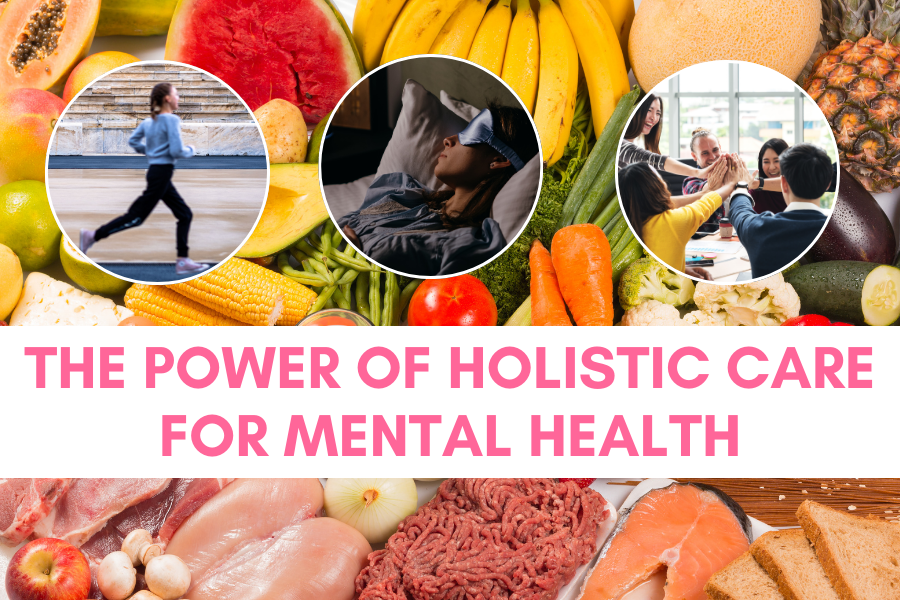
🧠 Nutrition for Brain Health: Certain foods—like omega-3 fatty acids, leafy greens, and fermented foods—help support brain function and can even reduce symptoms of depression and anxiety.
🏃♀️ Physical Activity: Exercise is one of the best ways to boost your mood. Even a simple 20-minute walk can trigger the release of endorphins and lower cortisol levels.
🧘 Mindfulness and Meditation: Mindfulness practices not only reduce stress but also help to physically reshape the brain, making it easier to regulate emotions and improve focus.
😴 Sleep Hygiene: Sleep is crucial for mental health. Chronic sleep deprivation can make anxiety and depression worse, so getting quality rest is key to maintaining a healthy mind.
🤝 Community Support: Isolation can actually deepen mental health struggles. Connection is medicine. Whether through group therapy or peer communities, support matters.
A System Ready for Revolution
What if psychiatry were reimagined to treat the whole person, not just the symptoms?
What if we combined the latest brain science with compassionate, holistic care?
Psychiatry needs a facelift — and we’re the generation to give it one.
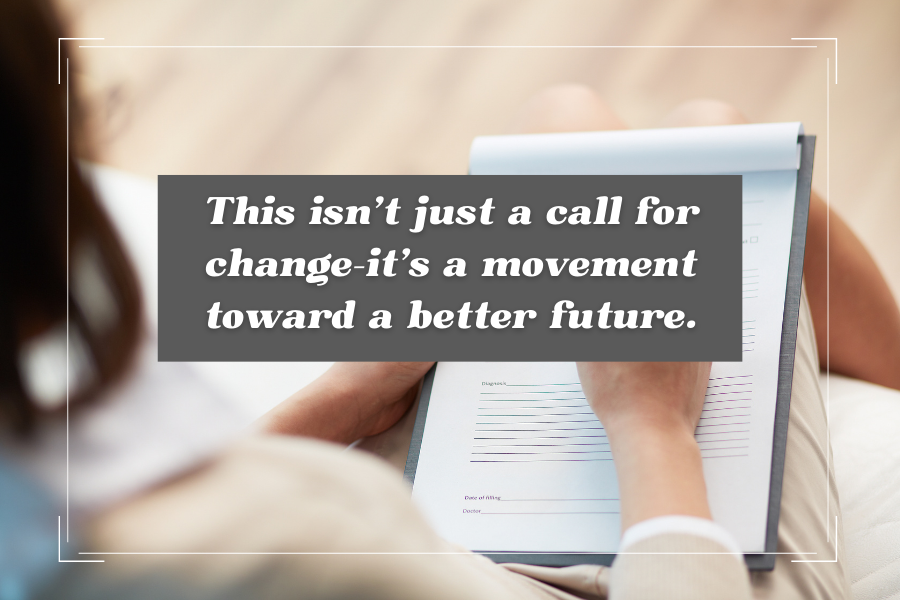
By reducing over-reliance on medications, listening to patient voices, and integrating brain-based and whole-body healing strategies, we can build a mental health care system that truly supports healing.
But this won’t happen unless we push for it.
Let’s reshape how we think about mental health, starting with ourselves and the way we approach care.
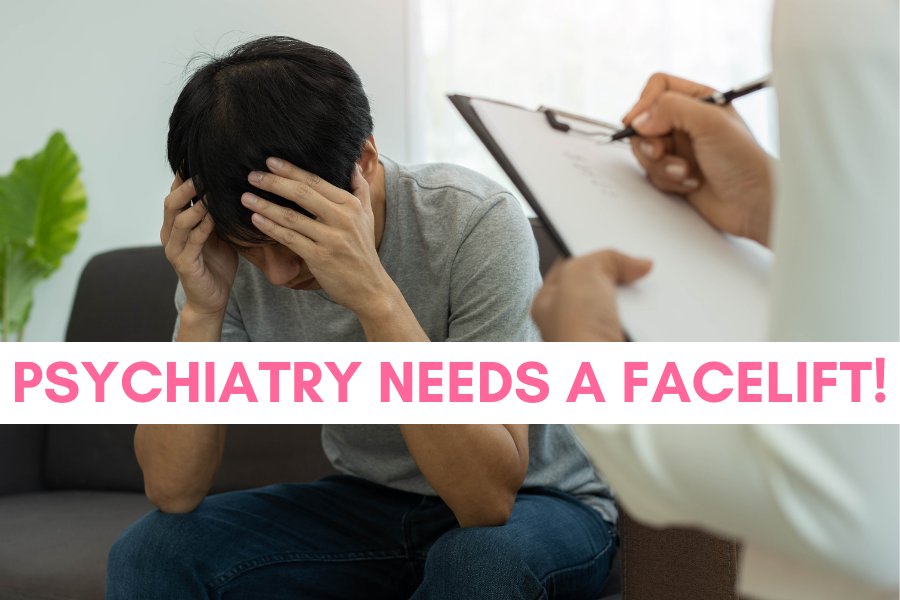
This post is all about psychiatry and mental health care.
+ show Comments
- Hide Comments
add a comment